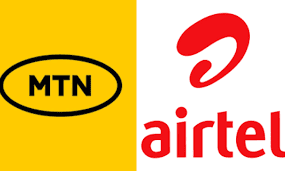Globacom, also known as Glo, has seen its market share drop to a record low of 11.9% in April 2025, according to the Nigerian Communications Commission (NCC). The telecom company lost 108,393 subscribers in just one month, falling from 20.7 million users in March to 20.6 million in April.
This drop shows years of poor service, slow upgrades, and weak leadership. These issues now affect both customer satisfaction and competition in Nigeria’s telecom industry.
Glo started strong in the early 2000s. It introduced per-second billing and gave out free SIM cards, pushing bigger competitors to lower their prices. However, the last ten years have been tough for the company. Glo stopped leading in innovation and became slow to adapt to market changes. In early 2024, the company claimed it had 27% of the market and over 60 million users. But after the NCC enforced stricter rules for active lines, that number dropped by 69%.
Frequent Network Outages from Glo Hurt Their Reputation
Glo’s poor network quality is a major reason for its fall. Between January and May 2025, the company experienced 45 major outages, according to Uptime, a monitoring platform on the NCC website. Only 9mobile had more issues, with 63 outages.
Most of Glo’s outages came from fibre cuts, vandalism, and power failures. On May 21, 2025, equipment theft in five states caused an outage that lasted over eight hours and affected voice, data, SMS, and USSD services. Another outage on May 20 in Adamawa and Taraba remained unresolved for more than four days.
While all Nigerian telecoms face network challenges, Glo’s response time is much slower than MTN’s. MTN usually fixes outages within one to three hours, but Glo takes much longer, making customers lose trust.
Poor Customer Service and Slow Internet Drive Users Away
More customers are leaving Glo due to bad internet, dropped calls, and poor customer support. Social media is full of complaints, and many users now switch to more reliable networks like MTN, even if they cost more.
Between January and April 2025, MTN gained nearly 3 million new subscribers, growing to 90.5 million users. In April alone, 1,233 people left Glo for other networks. Only 9mobile had more people leaving, with 5,042 users switching.
Every time Glo has a major outage, it loses more customers and damages its image. In today’s digital world, people expect stable and fast service.
Glo’s Decline Affects Telecom Competition in Nigeria
Glo’s shrinking market share is also bad for competition. MTN and Airtel now control 86% of Nigeria’s telecom market. With fewer strong players, prices may rise, and service quality could drop. Many people in rural areas, who once relied on Glo’s affordable services, may now face limited options.
In addition, common problems like fibre cuts and power outages continue to affect the whole industry. But Glo’s slow response and low investment in upgrades make its situation worse.
At the root of Glo’s problems is a leadership crisis. For many years, founder Mike Adenuga controlled the company tightly, with little separation between ownership and management. In late 2024, the company hired telecom expert Ahmad Farroukh as CEO and began forming a board. But Farroukh resigned after just one month due to disagreements over the company’s leadership style.
Industry expert Wole Adetuyi, CEO of Swift Telephone Network, said, “Glo’s problem is mostly about poor leadership, not a lack of customers. It makes people think Nigerians can’t run telecoms well, which isn’t true.”
This leadership gap comes at a time when Glo needs strong decisions. A recent NCC audit found problems in Glo’s SIM registration and data security, putting more pressure on the company.







One reply on “Glo Market Share Falls to Record Low of 11.9%”
[…] Nigerian government, alongside Globacom and Huawei, has launched a groundbreaking pilot project in Isuanin Kura, a small community in […]